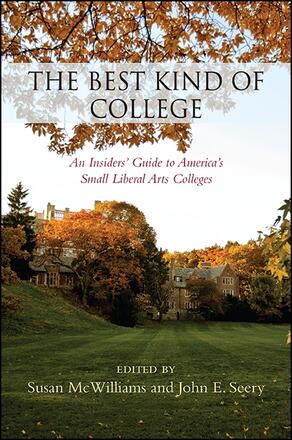
The Best Kind of College
An Insiders' Guide to America's Small Liberal Arts Colleges
Alternative formats available from:
Small college professors from across the United States explain why liberal arts institutions remain the gold standard for higher education.
Description
The fevered controversy over America's educational future isn't simply academic; those who have proposed sweeping reforms include government officials, politicians, foundation officers, think-tank researchers, journalists, media pundits, and university administrators. Drowned out in that noisy debate are the voices of those who actually teach the liberal arts exclusively to undergraduates in our nation's small liberal arts colleges, or SLACs. The Best Kind of College attempts to rectify that glaring oversight. As an insiders' "guide" to the liberal arts in its truest form the volume brings together thirty award-winning professors from across the country to convey in various ways some of the virtues, the electricity, and, overall, the importance of the small-seminar, face-to-face approach to education, as typically featured in SLACs. Before we in the United States abandon or compromise our commitment to the liberal arts—oddly enough, precisely at a time when our global competitors are discovering, emulating, and founding American-style SLACs and new liberal arts programs—we need a wake-up call, namely to the fact that the nation's SLACs provide a time-tested model of educational integrity and success.
Susan McWilliams is Associate Professor of Politics at Pomona College and the author of Traveling Back: Toward a Global Political Theory. John E. Seery is George Irving Thompson Memorial Professor of Government and Professor of Politics at Pomona College and the author of America Goes to College: Political Theory for the Liberal Arts.
Reviews
"At last, some good news about education! This collection brings together essays by professors at small liberal arts colleges, voices largely unheard in the debates raging about higher education. It ranges widely through disciplines and across colleges, taking us into classrooms where we see the creative, inventive kinds of teaching that go on when classes are kept small and professors can interact with students. This book is a welcome corrective to claims that higher education is 'broken' and in need of a high-tech fix, a quiet reminder that 'innovation' goes on as a matter of course at colleges where teaching is top priority and is kept to human scale." — Gayle Greene, Scripps College
"McWilliams and Seery have achieved something remarkable: they have found a new and interesting way to present the case for the liberal arts model in American education. More than that, they have managed to show the value of, as well as present the argument for, the model. At its best, the book recreates something of the experience of a liberal arts education in microcosm. This is a wonderful, provocative, engaging, and moving book. It is unlikely to be surpassed." — Simon Stow, author of Republic of Readers? The Literary Turn in Political Thought and Analysis